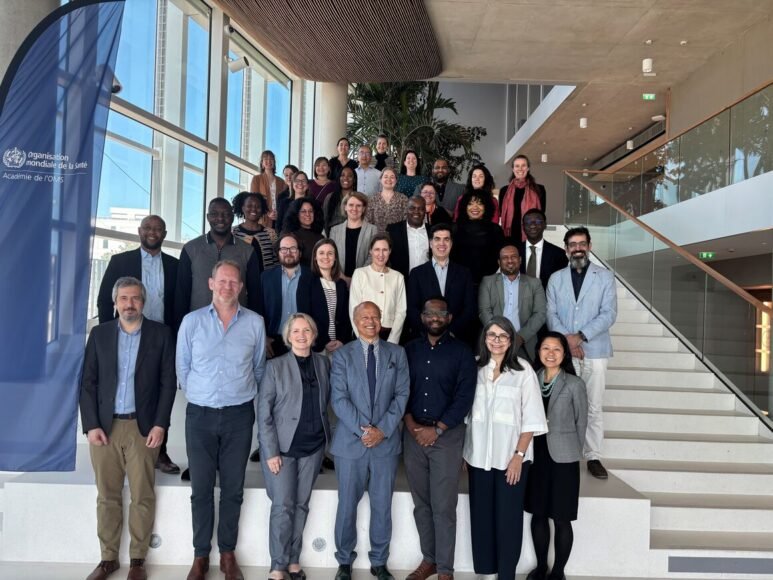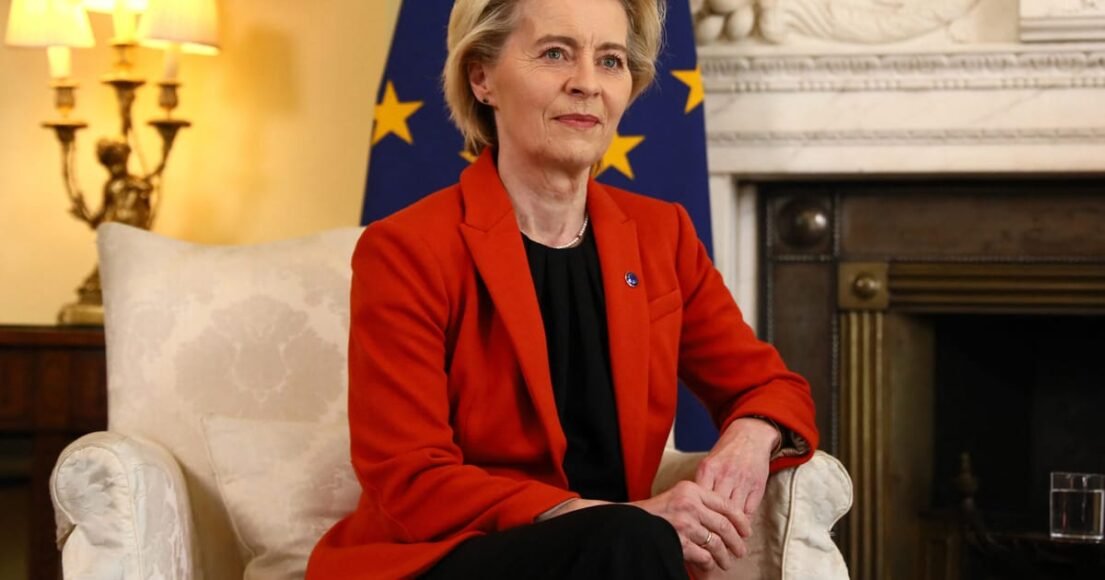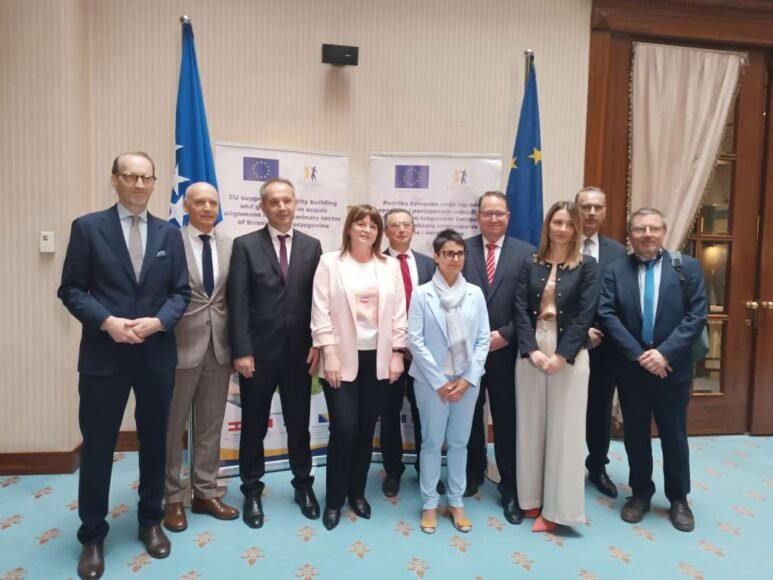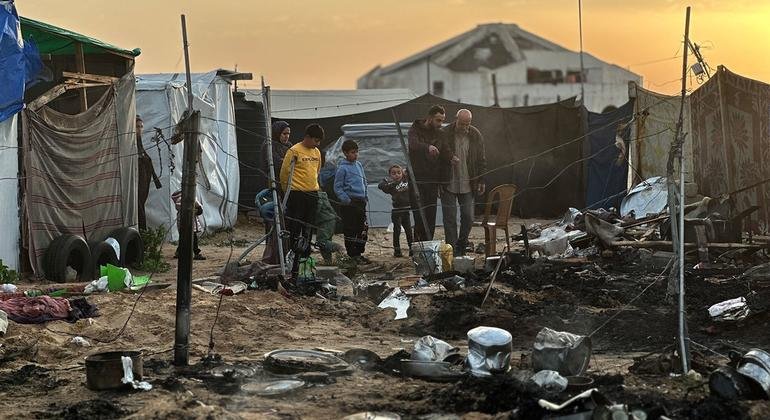
Sarajevo, (Fena) – The European Union initiative “Let’s Protect Animal Health – for a Safe and Healthy Life!” aims to bolster the veterinary sector in Bosnia and Herzegovina. This initiative has led to the development of essential legislation that is now prepared for adoption and subsequent implementation by the relevant authorities in the country.
During a press conference, key outcomes of the project were presented by Antonella Di Sandri, head of the Department for Economic Development and Infrastructure at the EU Delegation in BiH; Austrian Ambassador to BiH Georg Diwald; Stephan Maicon, Deputy Head of Mission at the French Embassy; Zvjezdana Borovac, Chargé d’Affaires of the Croatian Embassy; Ulrich Herzog, Chief Veterinary Officer of Austria, and Pavo Radić, Deputy Director of the Office for Veterinary Affairs of BiH and project leader from the beneficiary country.
The speakers emphasized their insights gained in the field, highlighting pressing priorities, risks, and potential opportunities for Bosnia and Herzegovina in its EU accession journey.
Di Sandri noted that the project has significantly advanced the alignment of BiH’s veterinary sector with EU standards, improved food safety, enhanced animal health, and opened new export markets, particularly to the EU.
“This is a crucial advancement that has made local products more competitive and safeguarded food safety for everyone. The project has produced pivotal legislation that is ready for adoption and implementation by the state’s competent authorities,” Di Sandri stated.
She also reminded attendees that this effort builds on a series of EU-funded projects in BiH, which collectively have invested €20 million in the veterinary sector over the past 15 years, providing resources for specialized and IT equipment, vehicles, expertise, vaccines, and training.
“The EU aims to demonstrate its commitment to developing a more efficient veterinary system in BiH. It is now the responsibility of the state to continue this work, enhance its legislation, and implement what has been established through the project,” she stressed.
Highlighting the importance of expediting reforms, she emphasized the need for BiH to align its laws with EU standards and to set up systems ensuring the safety of plants, animals, and people.
Herzog pointed out that since the project’s inception in 2020, financed with €3 million from the EU, various activities have been carried out to achieve significant goals in veterinary medicine.
“We can confidently say that the project has met its objectives—establishing connections among people who will continue to collaborate,” Herzog remarked.
Throughout the course of the project, 300 expert missions led to the creation of over 50 drafts of legal acts and implementation documents designed to enhance the operational framework and efficiency of veterinary services in BiH.
The initiative also organized around 100 different training sessions, workshops, and practical demonstrations, engaging more than 1,600 veterinary service officials from BiH.
Pavo Radić, Deputy Director of the Office for Veterinary Affairs of BiH and project leader, stated that the project was structured around three core components: animal health, animal welfare, and animal by-products.
“The aim was to align BiH’s legislation with EU standards. I can now confidently say we have achieved this, allowing us to discuss safer food, improved animal health protection, and enhanced human health protection in Bosnia and Herzegovina,” Radić emphasized.
The project was executed by leading institutions from three EU member states: the Austrian Agency for Health and Food Safety (AGES), the Ministry of Agriculture and Food of France, and the Ministry of Agriculture of Croatia. (24.04)













Leave a Reply